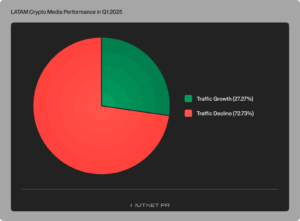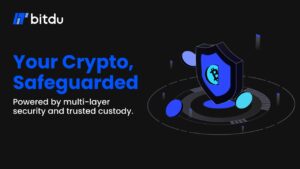
Dark Web and Cryptocurrencies: Illicit Activities and Transactions
The dark web and cryptocurrencies have gained significant attention in recent years due to their association with illicit activities and transactions. This article aims to provide an in-depth exploration of this topic, shedding light on the relationship between the dark web and cryptocurrencies, the types of illicit activities facilitated through these platforms, and the challenges faced in combating such activities. By delving into the dark corners of the internet and the digital realm of cryptocurrencies, we can gain a better understanding of the complex dynamics at play.
Understanding the Dark Web
What is the Dark Web?
The Dark Web refers to a portion of the internet that is intentionally hidden and cannot be accessed through traditional search engines. It operates within a network known as Tor (The Onion Router), which anonymizes user identities and allows them to browse the web anonymously.
How does the Dark Web function?
The Dark Web operates through a decentralized network, where websites are hosted on various servers located around the world. To access these websites, users need to utilize specific software, such as the Tor browser, which directs their internet traffic through a series of encrypted relays, making it difficult to trace their origin.
Dark Web anonymity tools
On the Dark Web, anonymity is highly valued. Users employ various tools to maintain their privacy, such as virtual private networks (VPNs), cryptocurrencies, and encryption techniques. These tools help individuals communicate and engage in transactions without revealing their true identities.
Cryptocurrencies: An Overview
What are cryptocurrencies?
Cryptocurrencies are digital or virtual currencies that utilize cryptography for security. They operate on decentralized networks called blockchains, which ensure transparency and prevent fraudulent activities. The most well-known cryptocurrency is Bitcoin, but there are numerous others in existence.
How do cryptocurrencies work?
Cryptocurrencies function through a technology called blockchain, which is a distributed ledger that records all transactions across a network of computers. Each transaction is verified by network participants known as miners, who ensure its legitimacy and update the blockchain accordingly.
Popular cryptocurrencies used on the Dark Web
While Bitcoin remains the primary cryptocurrency used on the Dark Web, other cryptocurrencies like Monero and Zcash have gained popularity due to their enhanced privacy features. These privacy-focused cryptocurrencies make it even more challenging to trace illicit transactions.
Dark Web and Illicit Activities
Drug trafficking and illicit marketplaces
One of the most prevalent illicit activities on the Dark Web is drug trafficking. Illicit marketplaces, such as Silk Road, have facilitated the sale and distribution of illegal drugs, allowing buyers and sellers to connect anonymously.
Cybercrime and hacking forums
The Dark Web provides a breeding ground for cybercriminals and hacking communities. Forums and marketplaces dedicated to selling hacking tools, stolen data, and malware thrive in this hidden corner of the internet, posing a significant threat to individuals and organizations alike.
Weapons and arms trade
The Dark Web has also been linked to the illegal trade of weapons and arms. Firearms, explosives, and other prohibited items can be bought and sold discreetly, attracting individuals involved in organized crime and terrorism.
Human trafficking and exploitation
Tragically, the Dark Web has become a platform for human trafficking and exploitation. Hidden forums and websites facilitate the trade of trafficked individuals, perpetuating a heinous industry that preys on the vulnerable.
Cryptocurrencies as a Facilitator
Why do criminals prefer cryptocurrencies?
Cryptocurrencies offer several advantages for criminals operating on the Dark Web. These digital currencies provide a certain level of anonymity, enable global transactions, and can be used without relying on traditional banking systems. These features make cryptocurrencies an attractive option for those engaged in illicit activities.
Bitcoin and its role in illicit transactions
Bitcoin has emerged as the preferred cryptocurrency for illicit transactions due to its widespread adoption, liquidity, and the perception of being relatively anonymous. However, it is important to note that Bitcoin transactions are recorded on the blockchain, which provides a potential avenue for investigation and tracking.
Challenges faced by law enforcement
Law enforcement agencies face significant challenges in combating dark web activities and tracking cryptocurrency transactions. The decentralized nature of cryptocurrencies, sophisticated encryption techniques, and the anonymity provided by the Dark Web make it difficult to identify and apprehend criminals.
Law enforcement agencies face numerous challenges when dealing with the dark web and its association with illicit activities and cryptocurrencies. These challenges arise due to the unique characteristics and complexities of the digital landscape. Here are some key pointers highlighting the challenges faced by law enforcement:
- Anonymity: The dark web provides a high level of anonymity to its users through encryption tools, making it difficult to trace individuals involved in illicit activities. Law enforcement agencies must overcome this anonymity hurdle to identify and apprehend criminals.
- Technological sophistication: Cybercriminals and those operating on the dark web constantly adapt to technological advancements, utilizing sophisticated encryption methods and anonymizing tools. This requires law enforcement agencies to stay updated with the latest technology and invest in advanced cybersecurity measures.
- Global nature: The dark web operates across borders, making it challenging for law enforcement agencies to coordinate efforts and share information internationally. Jurisdictional issues and varying legal frameworks further complicate investigations.
- Cryptocurrency transactions: Cryptocurrencies, such as Bitcoin, are used for anonymous transactions on the dark web. Tracking these transactions requires specialized knowledge and techniques, as blockchain analysis can be complex and time-consuming.
- Rapid evolution: The dark web and its associated illicit activities evolve quickly, with new marketplaces, tools, and methods emerging regularly. Law enforcement agencies must constantly adapt and develop strategies to keep up with these changes.
- Lack of resources: Combating dark web activities requires significant resources, including skilled personnel, advanced technology, and international collaboration. Limited resources can hinder the ability of law enforcement agencies to effectively address these challenges.
- Encryption and security: Dark web platforms utilize robust encryption and security measures, making it challenging for law enforcement agencies to infiltrate or monitor criminal activities. Developing effective strategies to bypass these security measures is crucial.
- Deep web vs. dark web: Distinguishing between the deep web (non-indexed internet content) and the dark web (intentionally hidden and anonymous) is essential for law enforcement. Understanding the nuances and focusing efforts on the dark web specifically is crucial for successful investigations.
Addressing these challenges requires continuous collaboration, technological advancements, international cooperation, and the development of legal frameworks that strike a balance between privacy and security. By staying ahead of cybercriminals and adapting to the evolving landscape, law enforcement agencies can improve their effectiveness in combating illicit activities on the dark web.

Combating Dark Web Illicit Activities
Cooperation among international law enforcement agencies
Addressing the challenges posed by the dark web and cryptocurrencies requires international cooperation among law enforcement agencies. Sharing intelligence, collaborating on investigations, and developing joint strategies are crucial to effectively combatting illicit activities.
Technological advancements and data analysis
Advancements in technology, such as machine learning and data analysis tools, can aid in identifying patterns and anomalies within large datasets. By leveraging these technologies, law enforcement agencies can improve their ability to detect and disrupt illicit activities on the Dark Web.
Regulatory measures and legal frameworks
Regulatory measures and the development of robust legal frameworks are essential to address the misuse of cryptocurrencies and combat illicit transactions. Governments and regulatory bodies must work in tandem to establish effective policies that strike a balance between privacy and security.
Conclusion
The intertwining of the dark web and cryptocurrencies has created a challenging landscape for combating illicit activities and transactions. Drug trafficking, cybercrime, weapons trade, and human exploitation thrive within the hidden recesses of the internet, facilitated by cryptocurrencies like Bitcoin. Law enforcement agencies face an uphill battle in countering these activities due to the anonymous nature of the Dark Web and the decentralized structure of cryptocurrencies. Nevertheless, through international cooperation, technological advancements, and robust regulations, progress can be made in minimizing the impact of these illicit activities.
FAQs
- Is it illegal to access the Dark Web? Accessing the Dark Web is not illegal in itself, but engaging in illegal activities on the Dark Web is. It is important to adhere to the laws and regulations of your jurisdiction when using the internet.
- Can cryptocurrencies be traced on the Dark Web? While cryptocurrencies offer a certain level of anonymity, transactions can still be traced through blockchain analysis. Law enforcement agencies employ specialized techniques to track illicit cryptocurrency transactions.
- Are all activities on the Dark Web illicit? No, not all activities on the Dark Web are illicit. There are legitimate uses for anonymity and privacy, such as secure communication and whistleblowing. However, the Dark Web is notorious for harboring a significant amount of illicit activities.
- What measures can individuals take to protect themselves when using cryptocurrencies? Individuals should exercise caution when engaging in cryptocurrency transactions. It is advisable to use reputable exchanges, employ secure wallets, and be mindful of sharing personal information online.
- How can I report illegal activities on the Dark Web? If you come across illegal activities on the Dark Web, it is best to report them to your local law enforcement agency. They can guide you on the appropriate steps to take and ensure that the information reaches the relevant authorities.
I have worked in the cryptocurrency industry for over 5 years and have written numerous articles on the subject. I am well-versed in all aspects of cryptocurrencies and blockchain technology, and am an expert in the field.








